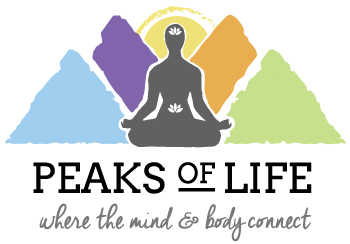Doesn’t everyone want to – process their emotions? I mean isn’t it important? We don’t want our feelings and emotions to get bottled up inside of us, right? Because when we do, it can cause us to experience an increase in mental and physical struggles, such as depression, anxiety, stress, anger, illness, aches, pains, etc.
Although, we don’t want to go to the other extreme either and over process/analyze everything. It can get exhausting. You may not be bottling up your shit, but you can also experience stress, anxiety, etc. Everything that happens or does not happen in your life doesn’t need to be looked at, analyzed, and picked apart. Yes, it is helpful and the insights can be amazing, but sometimes you can let them go, without dissecting them.
How about you? Where do you fall on the continuum of processing your feelings and emotions? Do you enjoy sharing and/or processing them ALL or do you AVOID them at all costs?
Like most things in life, we want to find our balance between processing too much and not processing any of our emotions. Although, today I want to talk more about being aware of where you fall on the continuum AND where the people in your life fall on the continuum.
Think about your partner, your spouse, your roommate(s), family members, friends, co-workers, etc. Do you know if they like to OR do not like to talk about, process, and/or share their emotions? If you do, that is great. Although, if you are not sure, I encourage you to be curious and observe the way the people in your life process their feelings and emotions (or if they prefer not to). You also never know if someone prefers to talk to a therapist, counselor, healer, or coach.
Once you know how the people in your life process their emotions, you will know who you can turn to. For example, if you are someone that enjoys processing your feelings and emotions, you can turn to the people in your life that also enjoy processing their feelings and emotions. You can analyze, figure out, talk about how you feel about situations, issues, life, etc. It can be a safe place for each of you to be seen and heard.
Then with the people in your life that you don’t know very well, or you have learned do not like to process their feelings or emotions, you can have a different approach. Maybe you want to ask for permission first before you share.
Let’s say you are hanging out with a friend that you know does not like to process emotions, but something happened and you need to talk it out. You can ask them if and when you can talk to them about it. It doesn’t mean they are going to say yes, but it will help you to respect where they are at and at the same time respect where you are at. You want to honor yourself and how you like to process, however, you cannot force or make someone else do the same. (Believe me, I’ve tried that route in the past. It doesn’t work out so well.)
If you are someone that does not like to process, share, or talk about your feelings and emotions – having the awareness that not everyone in your life also wants to avoid their feelings and emotions will help you navigate your relationships. It can be comforting to know there are people in your life you can hang out with knowing that you will not have to process or share your emotions.
With the people in your life that prefer to share their emotions, you can let them know it makes you uncomfortable. It may be difficult to voice how you feel, but it is respecting where they are at and at the same time respecting where you are at. It may be scary, but it may also feel good.
It can be easy to assume that the people in your life like to process/or not process emotions and feelings the same way you do. However, when we become aware of where we fall on this continuum and we are curious where others fall, we can honor and respect our differences in how we process.
“We all process things differently because we are all different . . .” Cindy R. Johnson

